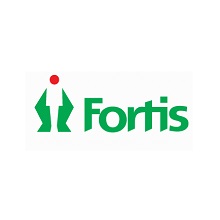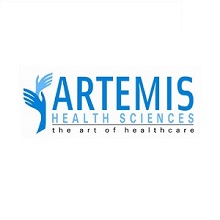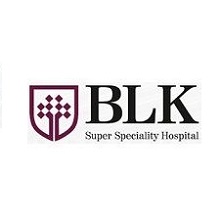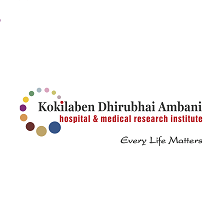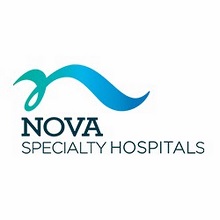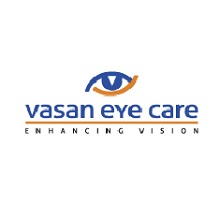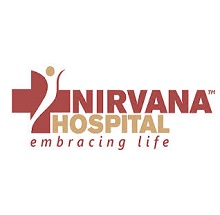Medical Treatments
- Urology Treatment
- Bariatric Obesity Surgery
- Oncology Cancer Treatment
- Cardiology
- Cosmetic Plastic Surgery
- ENT-Head And Neck Surgery
- Infertility Or IVF Treatment
- Joint Replacement Surgery
- Spine Surgery
- Organ Transplant
- Neurology
- Orthopedic Surgery
- Nephrology
- Stem Cell Therapy
- Endocrionology Or Diabetes
- 3D Liposuction Abdomen Lower Back
- Breast Lifting Implant
- Paediatrics Child Neonate
- Robotic Surgery
- Dentistry Dental Implant
- Gynaecology
- Pulmonology /Chest /Respiratory
- Dermatology And Venerelogy
- Opthalmology Eye Treatment
- Gastroenterology Or Hepatology
- Cyber Knife Radiosurgery
- Bone Marrow Surgery Transplant
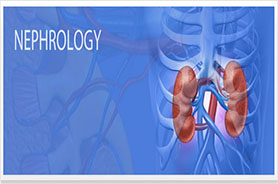
Nephrology
Nephrologist
A nephrologist (renal physician) is a physician specializing in the treatment and care of kidney disorders and renal diseases. Nephrologists are required to gain additional training in becoming experts with advanced skills to treat various kidney problems. Nephrologists also work with other specialized medical experts for various other treatments such as general (internal) medicine, transplant medicine, intensive care medicine, clinical pharmacology, etc.
A nephrologist may also undergo specialized training in kidney transplantation, dialysis, chronic kidney diseases, onco-nephrology (caner-related renal diseases) and other non-nephrology areas as well.
Nephrology Diagnosis
General medical history and physical examination are important aspects of the diagnostic process in nephrology. The diagnostic procedure requires checking family history, general medical history, medication, diet, occupation, etc while the physical examination consists of complete assessment of blood pressure, volume state, skin, joints, flank and abdomen.
The examination of the urine (urinalysis) helps in directly assessing for possible kidney disorders that may be indicated by the presence of blood in urine (haematuria), pus in the urine (pyuria), etc or cancer cells in the urine. Basic blood tests can be useful in determining the concentration of platelets, hemoglobin, sodium, potassium, etc in the blood which may be causing kidney problems.
In case the kidney problem results in structural abnormalities the doctor will depend on advanced imaging tests to confirm diagnosis. Medical ultrasonography, ultrasound, computerized tomography (CT) scan, nuclear medicine, magnetic resonance imaging (MRI) scan, etc. are used for diagnosing various types of kidney disorders.
In certain severe/advanced cases of kidney disorders several less-invasive diagnostic tests are required to confirm the earlier diagnosis. A biopsy of the kidney (renal biopsy) is usually performed by using a ‘core biopsy needle’ to obtain a small sample of the kidney tissue for detailed testing in the pathology lab.
Nephrology Treatments
Treatments in nephrology consist of medications, blood products, surgical intervention, renal replacement therapy and plasma exchange. Advanced care planning, health awareness and proper psychological support are key factors in improving your quality of life which has been affected by the presence of renal diseases or disorders.
Chronic kidney diseases such as diabetes are well-managed through treating causative conditions, avoiding substances that might prove toxic to the kidneys, anti-hypertensives, diet regulation and weight modification. Systemic effects on the body are seen due to impaired kidney functions and erythropoietin stimulating agents might be required to ensure proper production of red blood cells, activated vitamin D supplements and phosphate binders to counteract the adverse affects on the body.
Kidney transplant is one of the major surgical treatments provided in nephrology to replace a damaged/diseased kidney with a donated healthy kidney. This is a major surgical procedure and may use donated kidneys sourced from a living donor or a cadaver. Today the kidney transplant procedure is performed using minimally invasive surgical techniques to ensure less pain and faster recovery for the patient. Nephrologists follow stringent infection control practices, immune-suppressive protocols and display proactive vigilance for complications arising due to the kidney transplant as well as promptly manage them to make the kidney transplant process a complete success.
Nephrologists are experienced in performing major kidney transplant procedures such as:
- Laparoscopic donor nephrectomy
- Living-donor kidney transplantation (related/unrelated donors)
- Cadaver-donor kidney transplantation
- Cadaveric renal transplantation
At times kidney problems can be managed with proper diet, medication and other non-surgical treatments for the underlying cause of the kidney failure however if these treatment methods fail to address the problem adequately then the nephrologist may advise a kidney transplant.
Kidney failure in some cases is usually treated with a dialysis process that helps in replicating the functions of the kidneys artificially. Dialysis is required when you have end-stage kidney failure (between 85-90% of kidney function is lost). Dialysis helps to keep the body in balance by removing the excess water, salt and extra water to prevent fluid build-up in the body, ensuring that the chemical-levels in the blood (potassium, bicarbonate and sodium) are maintained at a safe level as well as managing blood pressure.
Hemo-dialysis and peritoneal dialysis are two methods of performing kidney dialysis process that help restore function of a failed kidney in the body through artificial devices.
In the hemo-dialysis method the excess waste and extra chemicals from the body are removed by using a ‘hemo-dialyser machine’. This machine is connected to one of the blood vessels in the arm or the leg to allow the passage of blood from the body to the machine and back to the body after artificial purification.
Peritoneal dialysis involves inserting a plastic catheter into the abdomen to gain access to the peritoneal cavity. The nephrologist will then fill the abdominal region with dialysate using the catheter. In this procedure the blood is not required to be removed temporarily from the body and stays in the arteries and veins that surround the peritoneal cavity. The dialysate is used to remove excess waste products and fluid from the blood. In order to filter unwanted proteins and blood clotting agents the nephrologist may perform a plasma exchange.
Nephrology is a comprehensive study and practice of the various techniques and methods for diagnosing and treatment that are required in cases where the kidneys are affected in a way that they start to malfunction of stop working completely (kidney/renal failure).
Inclusions and Exclusions
INCLUSIONS
1. Airport Pick-up on Arrival in India2. Airport Drop on Departure from India
3. Cost of initial Evaluation and Diagnosis
4. Cost of the Surgery or Treatment
5. Cost of applicable one implant/prosthesis
6. OT Charges and Surgeon’s Fees
7. Consultation Fees of the Doctor for the concerned specialty
8. Nursing and Dietician’s Charges
9. Hospital Stay for the specified number of days in the respective room category as mentioned against the package
10. Hospital stay includes stay of the patient and one attendant for the duration of stay mentioned against the package
11. Routine investigations and medicines related to the surgery or treatment.
12. Food for the patient and the attendant for the specified number of days as mentioned against the package
13. Travel Assistance/Medical Visa Invite/FRRO/ Visa Extensions
14. Assistance in finding right budget hotel or guest house accommodation.
15. Issuing Invitation Letter for Medical Visa.
EXCLUSIONS
1. All expenses for stay beyond the specified number of days2. Cross Consultations other than the specified specialty
3. Use of special drugs and consumables
4. Blood products
5. Any other additional procedure
6. Post discharge consultations, medicines, procedures and follow-ups
7. Treatment of any unrelated illness or procedures other than the one for which this estimate has been prepared
8. Travel Expenses and Hotel Stay
DISCLAIMER:
* Quote given is ONLY for the treatment in the hospital and DOES NOT include food as well as the accommodation cost outside the hospital.
* The quote may vary in case of co-morbidities, which are associated medical conditions and an extended stay.
* The treatment suggested is as per the information and reports provided to us. The line of treatment may differ according to the additional and comprehensive details asked by our consultants.
* The prices quoted are only indicative and may differ. They can be confirmed only after the patient is assessed by a doctor.
* The complete treatment cost has to be deposited in advance after the finance counseling for the patient is done at the hospital


